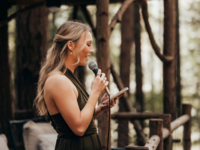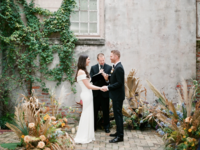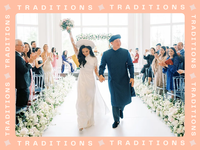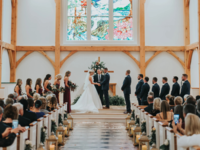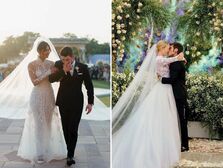The Rise of the Modern-Day Arranged Marriage

First comes love, then comes marriage… right? Not in an arranged marriage—a widely misunderstood custom that's still surprisingly common today. By some estimates, more than half of the world's marriages are arranged, with the tradition predominating in Africa, the Middle East, and Southeast Asia. Even in the U.S., it's practiced by immigrants from these areas, Hasidic Jews, and members of the Unitarian Church. And while it's true that some of these marriages are forced on couples, that's not always the case. Many times, it just means that rather than going on dates and trying to find a great guy yourself, your parents or a professional matchmaker do the work.
"Today's arranged marriages place much more emphasis on free choice," says Pamela Regan, a professor at California State University in Los Angeles who has studied this phenomenon. "People are saying, 'I'm willing to let my parents find someone, but if I don't like him, I have the right to say no." As for why people are still opting for family involvement verses picking a partner on their own, many point to the fact that "love based" marriages lack the durability of the arranged alternative. For instance, in the U.S.—a nation that extols following your heart to the altar— nearly half of marriages end in divorce. India—where 90 percent of marriages are arranged—has a divorce rate of one percent.
Only what's a modern-day arranged marriage really like behind closed doors? We asked three couples from different cultures to reveal how they met, when they fell in love (all said after their wedding), and why they're glad they took this unusual route down the aisle.
"At first I thought I'd made the biggest mistake of my life"
Although she was born and raised in Dubai, Anupama Das grew up dead-set against having an arranged marriage. "I just thought it wouldn't work: to meet a guy for a few hours then get married in a week," she says. "It sounded crazy." Her parents, hopeful she'd change her mind, set her up on a handful of dates in her early twenties, offering up each suitors' photo and a description of how he'd met their stringent criteria: similar caste (they were Nayars, considered upper class), religion (Hindu), and respectable profession (engineering or medicine). Anu met them, but felt no chemistry; she figured she could do a better job of finding the right guy herself. Only by the time she was 26—and still single—she agreed to one more setup through an aunt's friend to a 28-year-old doctor named Ramdas Kumar.
At that time, Ram was finishing his residency in Chicago; Anu was in London getting her masters in communications. In spite of the distance, Ram flew to London so they could meet. Both sets of parents flew in as well to size each other up. "That made it awkward," Ram admits. "I felt watched, listened to." Nonetheless, both Anu and Ram felt an instant spark of attraction. By the end of the three-day trip, they even held hands. At that point, both families clamored for marriage. But Anu and Ram insisted on taking things slow, emailing and calling daily. A month later, they got engaged, then visited each other three more times over a year. In 2007, the couple started planning their wedding, agreeing it should take place in India. On the big day, Anu dressed in a white and gold sari; Ram dressed in a toga-like outfit called a dhopi. Over a 1,000 guests attended, many of them random villagers who weren't officially invited—which, in India, is par for the course.
After their wedding, Anu moved to Chicago to live with Ram. That's when they relationship truly started—and at first, they both admit it was rough. "There were moments I'd think 'Oh my gosh, I made the biggest mistake of my life!'" Anu says. Meanwhile, Ram was disappointed when Anu didn't instantly bond with his friends or enjoy going out as much as he did. Still, Ram recognized that he'd likely have some compatibility issues with anyone, and that the strength of their relationship hinged on something deeper. "She was going to be there for me, and I was going to be there for her," he says. "Even though we'd told each other 'I love you' before being married, I didn't really feel it or understand the true extent of it until we were married."
Today, six years after they'd met, Anu and Ram have a one-year-old son, and can't imagine being married to anyone else. "In arranged marriage, you go in with no expectations, and with no expectations you're always happy," Anu explains. "One of my friends who had a 'love marriage' just got a divorce. It didn't work out because there was always something they were comparing it to: 'He used to be so affectionate but he's completely different now, why has it changed?'" For Ram, arranged marriage was also a way to hold onto his roots. "I was born and brought up in the U.S. but I don't want to lose my culture," he says, adding that he'll one day encourage his son to have an arranged marriage. "I'll tell him 'that's how your dad and mom met,'" he says, "'and look how it worked out.'"
"There is wisdom in our traditions"
Within traditional Jewish communities, having a Shidduch—their term for arranged marriage—is as expected as keeping a kosher kitchen. And while most Hasidic Jews remain tight-lipped about their marital lives, David (not his real name), a 26-year-old talent agent in Brooklyn, was willing to share his experiences in an effort to demystify them. "People should see the value of our customs and not just write them off as medieval superstition," he says. "I think there is wisdom in our traditions that is universal and can help people around the world."


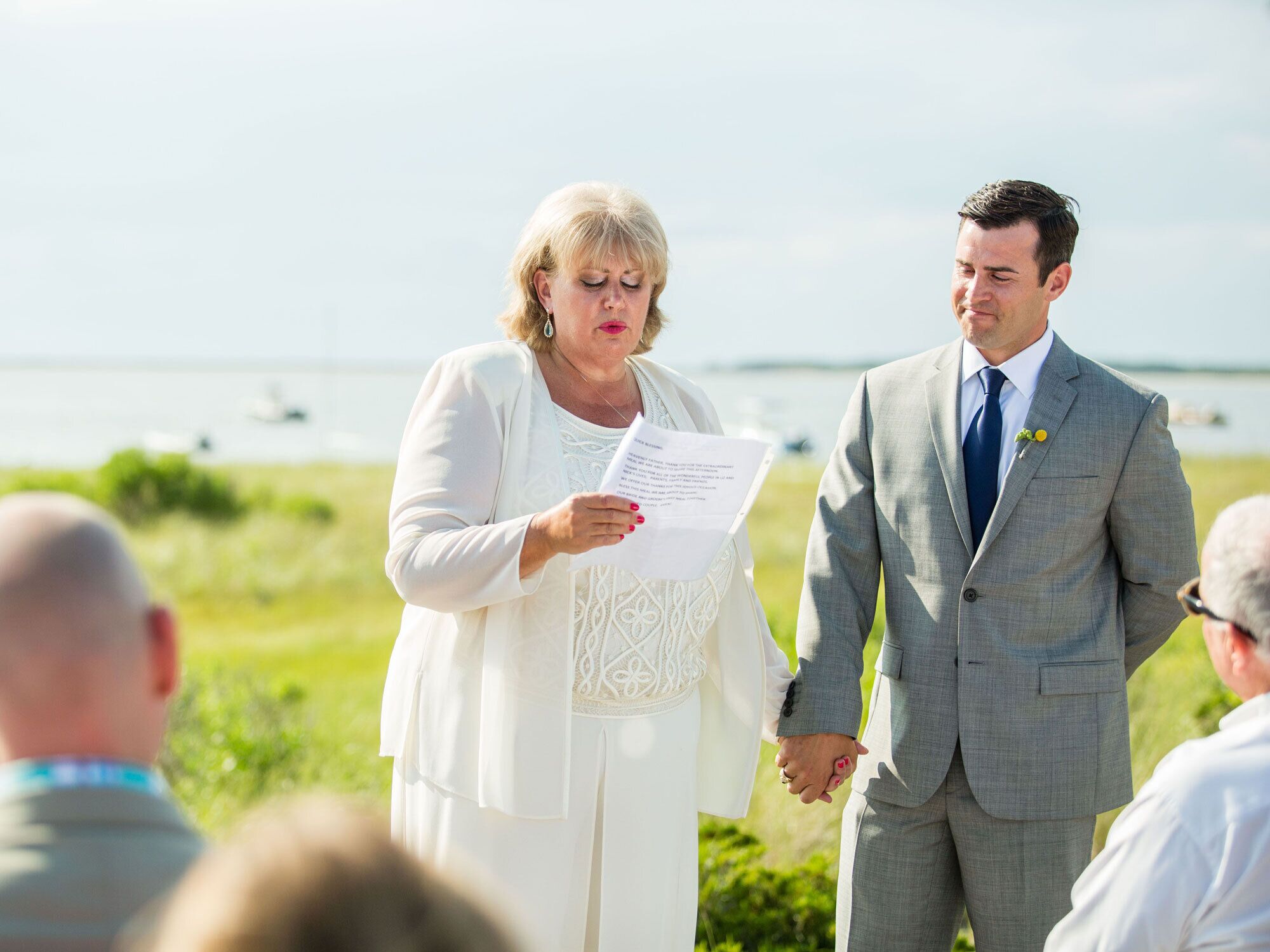
Growing up, Hasidic men and women never speak to each other, keeping separate schools and social functions until they're ready to find a mate. When David turned 23, his parents put the wheels in motion by turning to a professional matchmaker called a Shadchanim. "They screen for red flags, like physical or mental ailments or a history of divorce in the family," David says. Before the prospective couple even meets, they get blood-tested for Tay-Sachs, a genetic disorder common within their culture. "I don't see it the other way: where you can meet somebody, like them, then see if you're not good to get married," he says. "That's just a cruel game where someone just gets hurt."
On David's very first setup, he picked up his date at her home and drove to a hotel lobby—someplace public where they could nonetheless have a private conversation. "I didn't know much other than her name," he admits. "When I first saw her, I was excited. I thought she was way out of my league." They both loved California and Hasidic pop; plus their great-great grandparents had worked together back in Russia. The instant he got home, he called his parents (who were waiting up, of course) to give them the thumbs up.
By their second date, David was ready to propose. Only at this point, a call from the matchmaker broke the news: The girl wasn't interested in pursing things further. "I cried for one day," David says. Then his dad pointed out the obvious. "My father said, 'So what? You don't know her.' That really is the theory behind this system: You don't love someone until you marry them. Until then, it's just a technicality to see if you're right to start falling love."
David moved on to another setup, although she paled in comparison to his first. Then a few months later his matchmaker called again to say that the first woman—who had been on a few more lackluster setups herself—was willing to give him another chance. Elated, David took her on three more dates before proposing with a ring and a bouquet of flowers. Three months later, they married in Montreal, under a canopy called a chuppa, the bride wearing a vintage white dress, David in traditional Hasidic garb of a long coat, belt, and hat. After breaking the glass, they kissed for the first time.
Even after marriage, David and his wife observed some strict rules. For one, they weren't allowed to be physically intimate during the week of menstruation or the week afterwards, leaving only two weeks out of every month to have sex. "The theory behind it is if everything is available, then nothing is sacred or precious," David explains. "When certain things are held back, that can hold a relationship together forever." Three years and two kids into his marriage, David says he's very happy, although feelings of "love"—in the traditional, sweep-you-off-your-feet sense—have remained elusive. "I can't say I'm there, that I've reached the pinnacle," he says. "Every week, there's more and more feeling and it's continuously growing. I don't think I'll ever be there."
"We had sex for the first time a year after our marriage"
Back when Reverend Sun Myung Moon brought the Unification Church to the U.S. in the 1970s, thousands joined and agreed to have Reverend Moon match them with a marriage partner of his choice for his famous mass weddings. Jacob Faris, whose parents had met that way, wasn't sure if he wanted to follow in their footsteps at first. During high school he dabbled in dating, only when the girl he was seeing died in a drunk driving accident, he took it as a sign to do some soul searching. "It hit me hard," he says. "It gave me a sense of bigger motivation to figure out my philosophy of life."
At 19, Jacob joined a volunteer program with the Unification Church, and met an 18-year-old girl named Korie Christiansen. Although he barely knew her, she appeared to him in a dream he couldn't shake. "In the dream, Korie was holding our baby," he recalls. Since members of his religion are encouraged to trust their intuition, Jacob shared the dream with his parents. They, in turn, decided to propose an arranged marriage to Korie's family.
Korie, upon hearing the news from her parents, was surprised. "And scared," she admits. Although she'd always wanted an arranged marriage, she wasn't sure Jacob was the right guy. "My first impression of him was that he was arrogant," she says. Nonetheless, she agreed to meet him at a café. "We were extremely calm, as if it were a business decision," Jacob recalls. This levelheaded approach appealed to Korie. "It was important for me to not just look at what was appealing to me," she says. "I wanted to take into account 'Is this the best decision for my family? Will this make me a better person?' There wasn't a lot of emotion involved in it. I think being able to step back and have that kind of insight helps a lot."
Korie and Jacob decided to embark on 40 days of prayer with their parents to gain some clarity, asking God if they were meant to be together. Over time, the answer that emerged was yes. For the next nine months, they continued seeing each other. Then, in 2009, they flew to New York City to participate in their own mass wedding. Korie, wearing a bridal gown, took her seat next to Jacob in a church in Times Square, sandwiched between hundreds of their friends, while Reverend Moon shuffled down the aisle sprinkling holy water on the crowd. Afterwards the couples went off to celebrate, then returned to separate girls- and guys-only hotel rooms. "Our religion recommends that couples refrain from kissing or sex for forty days," Korie explains. "That gives you time to create a foundation for your marriage, rather than jumping straight into the physical. We respected that."
Since they were attending college on opposite coasts—Korie in Boston, Jacob in Seattle—they waited a year to have sex, and four to move in together. Feelings of love were also slow to form. "With arranged marriage, it's not like you instantly click and fall in love," explains Jacob, an IT sales specialist in Seattle. "We take the person we're matched with and think, 'if I put enough into it, love will develop." It may not be "romantic" in the traditional sense, but the end result is the same: a strong relationship that many of his friends admire. "One of my friends says he envies us," says Jacob. "He's dated a lot of girls, and the stories he tells of how unstable it is, I can see where he's coming from."
